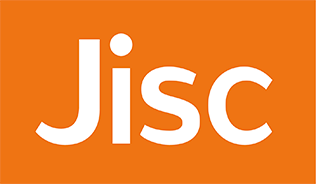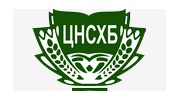Chayanov A. V. Organization of agricultural production at the local level (Article of A.V. Chayanov in English) // The Russian Peasant Studies. 2022. V.7. №3. P. 21-34.
DOI: 10.22394/2500-1809-2022-7-3-21-34
Annotation
This typescript was found in the fund of the Soviet party economist Lev Natanovich Kritzman (F. 528) in the Archive of the Russian Academy of Sciences (ARAS), and has never been published before. The typescript consists of 16 sheets without an autograph or any handwritten corrections and marks. The typescript does not have any direct indications of the time of its creation. There are two more documents: a letter to Kritsman of December 26, 1929, and a fragment of the text written by Chayanov’s hand, which is very close to this typescript and seems to be one of its drafts. On the back of this sheet, there is an inscription — “2nd House of Soviets. Room 327. To L. N. Kritzman from A. Chayanov”.
The typescript presents the concept of the gradual ‘rooting’ of the peasant economy in socialism through the voluntary ‘cooperative collectivization’ and with the incentive mechanisms of a purely economic nature. We can see similar theoretical bases in Lenin’s ‘cooperative plan’ and Bukharin’s theory of the peaceful ingrowth of capitalist elements into socialism. In these ideological-theoretical alternatives to Stalin’s collectivization, the peasant was considered a full-fledged subject of the economic activity and socialist construction, who needed all possible assistance with the state policy measures rather than commands.
Chayanov refused to choose between the state-farm construction and the total socialization of the peasant agricultural sector. He developed an alternative program of socialist construction, which included the thorough revision of his own positions on some issues. Based on the data, Chayanov sought to show how far the Soviet village had moved from the pinnacle of the pre-war economic development, and that the Soviet peasantry had ceased to be ‘an object of the agronomic influence’. Thus, according to Chayanov, in contemporary realities, old methods and schemes of agronomic work became ineffective.
Archivists dated the documents in the file to 1930. We do not know reasons for such dating, but it raises some doubts. We can be certain about relative dating and the lower chronological frame — 1927. According to the address-reference book All Moscow, Kritzman moved to Room 327 of the 2nd House of Soviets in 1927 (All Moscow (1927) Address-Reference Book for 1927: 3rd year of publication by the Moscow Council; with the new plan for the city of Moscow, Moscow, p. 147).
There are more doubts about the upper chronological frame. If all these documents are really related to each other, the text should be dated according to the letter to Kritzman. Chayanov wrote that he had not finished an agronomic essay (in collaboration with P. Ya. Gurov and S.G. Uzhansky), because he was terribly upset by the first days of work of the First All-Union Conference of Marxist Agrarians. Moreover, Chayanov “did not get Sadyrin’s article, which made him throw away the whole ‘reality’ and end his ‘cooperation’ in the same purely theoretical terms as he had started” (ARAS. F. 528. Inv. 5. F. 137. L. 1). Chayanov could mean his articles for the Great Soviet Encyclopedia, in which Kritzman edited the section of economic sciences and the subsection of economic policy until 1931; or for one of the periodicals, in which Kritzman was a member of the editorial board (for instance, On the Agrarian Front). Chayanov could use the word ‘cooperation’ as a title for the typescript sent to Kritzman for proofreading and editing.
By the end of 1929, Chayanov was in an extremely difficult situation, and it became even worse after the First All-Union Conference of Marxist Agrarians, at which Chayanov and his colleagues were ideologically persecuted. Probably, after Stalin’s speech, Kritzman decided to postpone or abandon this publication. There is no article by Chayanov in the Great Soviet Encyclopedia, and no articles by Gurov or Uzhansky in the corresponding volumes; and this typescript was not published.
If our reasoning is correct, Chayanov’s courage can hardly be overestimated: under the huge ideological and psychological pressure, he decided to publicly announce his disagreement with Stalin’s course.
Editor’s notes are marked as Ed. and given in square brackets.
Keywords
Chayanov, collectivization, peasantry, state, social agronomy, socialism.
About the authors
Chayanov Alexander V.
Afanasenkov Vladislav O. (publisher), Senior Researcher, Moscow School of Social and Economic Sciences; Junior Researcher, Research Centre for Economic and Social History, Russian Presidential Academy of National Economy and Public Administration. Vernadskogo Prosp., 82, Moscow, 119571, Russia.
E-mail: This email address is being protected from spambots. You need JavaScript enabled to view it.
Trotsuk Irina V. (translator), DSc (Sociology), Professor, Sociology Chair, RUDN University; Senior Researcher, Center for Agrarian Studies, Russian Presidential Academy of National Economy and Public Administration. 119571, Moscow, Vernadskogo Prosp, 82.
E-mail: This email address is being protected from spambots. You need JavaScript enabled to view it.
























